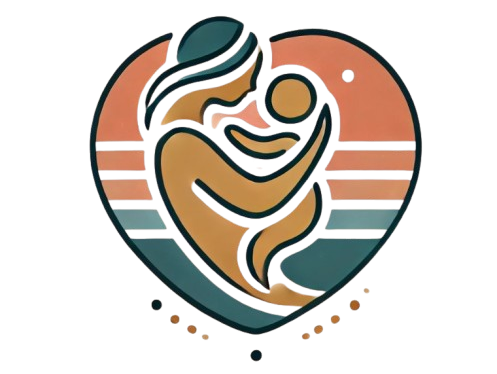Understanding Common Food Allergies in Babies: Signs, Symptoms, and Prevention

In recent years, there has been a noticeable uptick in the awareness of food allergies, particularly in babies. With parents becoming increasingly vigilant about their children’s health, understanding common food allergies in babies has never been more crucial. Food allergies can range from mild reactions to severe and life-threatening conditions, making it essential for parents and caregivers to be well-informed.
This topic is particularly relevant today as more children are being diagnosed with food allergies than ever before. According to the Centers for Disease Control and Prevention (CDC), food allergies affect approximately 8% of children in the United States. This article aims to equip you with the knowledge to identify baby food allergy symptoms early and take preventive measures. You will learn about the signs of food allergies in infants, how to prevent them, and actionable steps for infant allergy prevention.
Recognizing Baby Food Allergy Symptoms
Identifying baby food allergy symptoms can be challenging, especially for new parents. The symptoms can vary widely, ranging from mild skin rashes to severe anaphylactic reactions. Common symptoms include hives, swelling, vomiting, diarrhea, and difficulty breathing. Recognizing these signs early can make a significant difference in managing the allergy.
For instance, if a baby develops hives shortly after consuming a new food, it may be a sign of an allergic reaction. Similarly, persistent vomiting or diarrhea after eating could indicate an allergy. In severe cases, symptoms may include swelling of the lips or throat, which requires immediate medical attention.
Understanding the nuances of these symptoms is essential for timely intervention. Parents are encouraged to keep a food diary, noting any reactions their child has to specific foods. This record can be invaluable when discussing potential food allergies with a healthcare provider.
Common Food Allergies in Babies
The most common food allergies in babies include milk, eggs, peanuts, tree nuts, soy, wheat, fish, and shellfish. These foods account for the majority of allergic reactions in children. Milk allergy, for example, is one of the most prevalent, affecting approximately 2.5% of children under the age of three.
Eggs are another common allergen, with many children experiencing reactions ranging from mild skin irritations to more severe gastrointestinal issues. Peanut allergies are also on the rise, with studies showing that the prevalence has more than tripled in recent decades.
Understanding these common allergens can help parents make informed choices about introducing new foods to their babies. Experts recommend introducing potential allergens one at a time and observing for any adverse reactions, thus making it easier to identify the culprit if an allergy occurs.
Preventing Food Allergies in Babies
Preventing food allergies in babies is a topic of significant interest among parents and healthcare professionals. While not all allergies can be prevented, certain strategies may reduce the risk. Early introduction of allergenic foods, as guided by recent studies, is one approach that has shown promise.
For example, the LEAP (Learning Early About Peanut Allergy) study found that introducing peanuts to high-risk infants between four and eleven months old significantly reduced the risk of peanut allergies. This proactive approach is now being recommended by many pediatricians.
Another preventive measure is ensuring a healthy diet for both the mother and the baby. Adequate water intake recommendations for new moms, along with a balanced diet, can support the baby’s overall health and potentially reduce allergy risks. Additionally, breastfeeding has been associated with a lower incidence of allergies, providing another layer of protection.
Steps for Infant Allergy Prevention
Consulting Healthcare Professionals
Consulting with a pediatrician or an allergist can provide tailored advice based on your child’s medical history and risk factors. This is particularly important for families with a history of allergies.
Introducing Foods Gradually
Introduce new foods one at a time and in small amounts. This method allows you to monitor any signs of food allergies in infants without overwhelming their system.
Maintaining a Safe Environment
Ensure that the baby’s environment is safe by removing known allergens from their diet and surroundings. This includes being cautious about cross-contamination in food preparation.
For a visual guide on identifying and managing food allergies, check out our complementary video content, which provides expert insights and practical tips for parents navigating this complex issue.

Frequently Asked Questions
What are the first signs of food allergies in infants?
The first signs of food allergies in infants often include skin reactions such as hives or eczema, gastrointestinal symptoms like vomiting or diarrhea, and in severe cases, respiratory issues. It’s essential to monitor your baby closely when introducing new foods and consult a pediatrician if you notice any concerning symptoms.
How can I prevent food allergies in my baby?
Preventing food allergies involves strategies such as early introduction of allergens, breastfeeding, and maintaining a healthy diet for both the mother and baby. Consulting with healthcare professionals for personalized advice is also recommended.
When should I introduce allergenic foods to my baby?
Current guidelines suggest introducing allergenic foods between 4 to 6 months of age, especially for children at high risk of allergies. This introduction should be done cautiously and one food at a time, monitoring for any adverse reactions.
Can food allergies in babies be outgrown?
Yes, many children outgrow food allergies, particularly those to milk, egg, soy, and wheat. However, allergies to peanuts, tree nuts, and shellfish are less likely to be outgrown. Continuous monitoring and consultation with an allergist can help manage these allergies.
What should I do if my baby has a severe allergic reaction?
If your baby experiences a severe allergic reaction, such as difficulty breathing or swelling of the lips and tongue, seek emergency medical help immediately. Administer an epinephrine injection if prescribed and follow up with a healthcare provider for further evaluation and management.
Conclusion
In conclusion, understanding and managing common food allergies in babies is crucial for their health and safety. By recognizing baby food allergy signs and symptoms early, parents can take appropriate steps to safeguard their children. Strategies such as early allergen introduction, maintaining a nutritious diet, and consulting healthcare professionals can significantly aid in infant allergy prevention.
Further, parents should remain vigilant and proactive in observing their babies’ reactions to new foods, keeping detailed records, and seeking medical advice when necessary. This proactive approach can make a significant difference in preventing and managing food allergies.
For more information on related topics, consider exploring articles on water intake recommendations for new moms and how to create a balanced diet plan for infants.
Further Reading
- Water Intake Recommendations for New Moms
- Creating a Balanced Diet Plan for Infants
- Understanding the Role of Breastfeeding in Allergy Prevention




